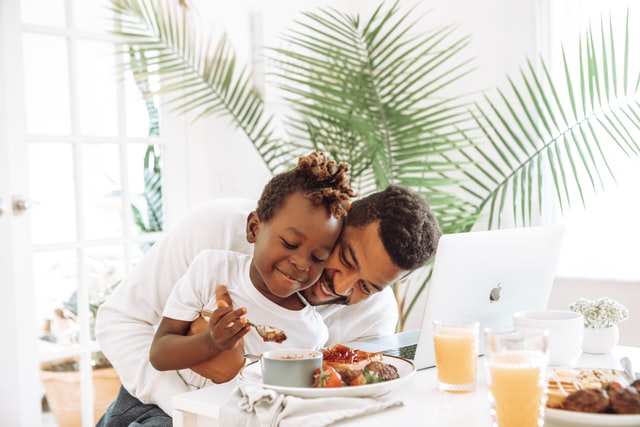Children often experience or suffer from anxiety through childhood as they experience new and unfamiliar things or are stretched and challenged. Helping a child with anxiety starts with recognises the first signs of anxiety in your child or children. Then, it is important to have helpful mechanisms to either alleviate it or help them manage it, so it doesn’t rule their life. One in eight children experiences emotional or behavioural problems growing up.
Covid-19 has exacerbated anxiety, disrupting those things that give life structure and taking away all sense of our usual control. This makes the issue more acute than ever to ensure you are equipped to handle any sign of anxiety you can identify.
How to identify when something is wrong
You know your own child or children better than anyone else. Everyone can feel anxious or down on occasion, it’s when this goes on for a long time or intensifies then there is cause for concern.
The things you need to look out for are:
- Longer term problems sleeping
- Waking up in the night from bad dreams
- Wetting the bed
- Loss of appetite or not eating properly
- Finding it hard to concentrate
- Fidgeting and tense
- Withdrawing from socialising with others
- Significant changes in how they behave generally
- Signs of self-neglect or even self-harm
- Having negative and worrying thoughts
- Withdrawing within the family and not wanting to talk to you
Supportive tips on how to help a child with anxiety
Listen to them
Don’t ask leading questions, value what they say, thereby making them feel valued and don’t judge them. Also, think about how you can help them work through their feelings constructively and problem solve with them.
Get support
It’s important to reach out for help if you think you and your child need it. There are good resources to turn to:
- The Young Minds Parents Helpline
- Action for Children
- Barnardo’s
- The NHS Children’s and Young Peoples Mental Health Services
- Children and Young People’s Community Eating Disorder Team
Give them your time
Sit with them without your phone with you and the TV off, so they know you are not going to get distracted. Don’t allow anyone to have technology at the meal table so you can talk, again without distraction. Also, try not to answer calls when they are talking to you. Give them quality time, not the odd ‘how are you’ and talk to them about your life and your emotions so they feel they know you too.

Give them structure
Give them regular routines to structure their day. Some things that help are healthy eating and snacking, good exercise and time outside together and a good sleep time regime. It’s also important to set positive, realistic goals and share in the joy of the structure, don’t use it as punishment.
Encourage their interests and hobbies
Hobbies and interests give healthy structure. These can lift the spirits and bring positivity into their day and it can connect them to others with a similar interest.
Take what they say seriously
The goal is not to eliminate anxiety but to help a child manage it. Taking what they say seriously is key to helping them do that. Listening to them and valuing what they say will make them feel valued and heard countering the loneliness anxiety breeds.
Recognising that head lice can cause children anxiety
Head lice can cause anxiety for a child which can manifest itself in different ways. Children can feel as if there is something wrong with them because they have it and other children don’t. They can feel stressed for catching it if Mum feels stressed about them having it.
They can also feel socially ostracised or bullied if they are aware that other children are avoiding them because they have it (and those children have been told to avoid the nitty kid). They can feel shame, dirty, or different, and it can undermine their self-confidence.
Getting rid of head lice quickly and effectively is therefore important for a child. The head lice product treatments can often help create a continuous cycle of infestation because they aren’t as effective as they promise. It is important to understand that if you rely solely on the head lice products this may happen, so you need to nit comb the hair thoroughly and frequently to ensure you have extracted it all and that you shut the infestation down. If an infestation has become heavy, the anxiety felt by the child will be heightened.
If you need help you probably need a professional head lice removal service to do this for you. The Hairforce can shut the infestation down for you through its network of clinics or 020 7485 7351.